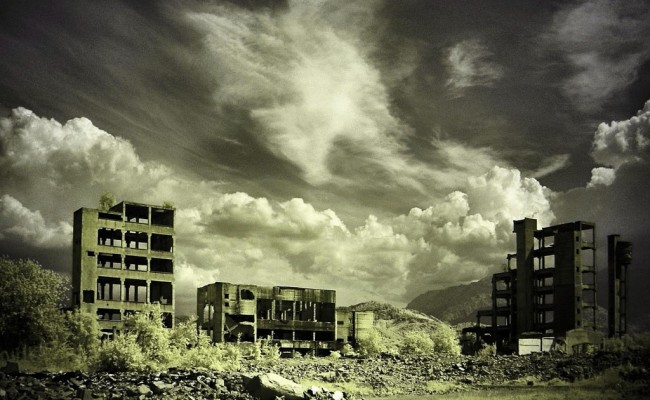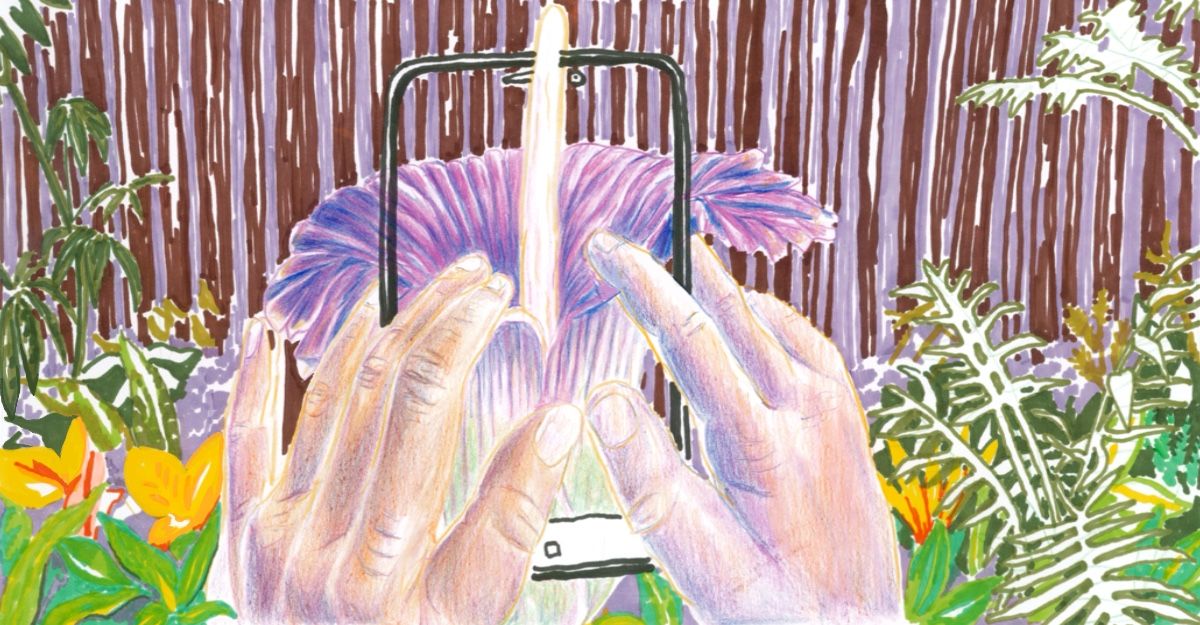In the near future, Pitcairn is sinking. When the island sinks, it may trigger a world-ending series of events. Or it might not. There’s no way of knowing, but plausibility levels are high. There’s a live feed of infinitesimally specific data on its drop; Pitcairn has become a focal point for the world’s anxieties.
Briohny Doyle’s The Island Will Sink is about uncertainty, and the ethical implications of looking (away). What responsibility do we have to the world outside when we can participate in ever more engaging virtual realities? What are the relationships between the spaces we choose to inhabit or escape?
He pulls his headset down over his eyes. ‘Let me know when you’ve decided to deal with what’s actually happening,’ he says, disappearing into a more complex and earnest world.
The protagonist, Max Galleon, is the pioneer of immersive disaster cinema. His pitch for what may be the last ever film in this genre centres on Pitcairn. In Max’s world, film is no longer a purely audio-visual medium. Viewers also experience sensory simulations of catastrophe – heat, cold, pain.
His business partner Jean dispatches to the island. Jean posits a revolutionary idea; not only will the viewer experience a realistic simulation, but also that people experiencing real catastrophes could directly record the sensory data. No more simulations: ‘Disaster nostalgia! Imagine the level of realism. A new cinéma vérité!’
As virtual reality technologies like the Oculus Rift come into more common usage, it seems pertinent to ask what effect this will have on the physical spaces of shared experience. There’s no covert pashing in the dark of the matinee while you have your VR headset on.
Significantly, VR also affects storytelling. It shifts perspective from the third person – being told a story about a character – to first person: the viewer/player experiences the story as protagonist. In an increasingly globalised world, will immersive storytelling produce more empathy for the other? Or does it facilitate a greater disconnect from our material reality? The line between immersion and disconnection is an unclear one.
Max’s children are representative of different attitudes to media and the environment. Their attitudes slide between vigilance and apathy, though both are powerless to affect change in a precarious world.
The pester-power of children is harnessed by ‘Pow-Pow the Panda’, an omnipresent digital mascot who awards points for eco-friendly behaviour. Max’s daughter, Lily, is observant of enviro-laws. She informs her father of the off-peak times to shower. It’s a little bit reminiscent of the informant children of 1984, though more loving. When news comes of the collapse of global krill populations, Max finds her in the yard attempting to raise krill. It’s uncertain how this would be of practical use even if she were to be successful, but she’s constantly trying.
When Max brings home an injured rabbit, Lily initially protests that it’s not a native animal, but she seems mesmerised by it. It’s imperfect, but it’s a physical entity – it does not disappear in a power outage, as Pow-Pow the panda mascot does. The real takes the place of the simulated.
Her brother Jonas is equally absorbed in media, though for different reasons. He keeps track of the sinking of Pitcairn along with the rest of the world – ‘We’ve lost another 0.00012’ – but it’s overwhelming for him. When pressed to engage with current events or the real world, he delivers spiels on the unknowability of anything.
Jonas spends most of his time playing Mutiny, a VR game recreating the colonisation of Pitcairn. Jonas believes this gives him specialised knowledge of the physical location, should they go there for the film shoot. Max reminds him that in their automated home, Jonas has never fended for himself at all in the real world. Knowledge is not the same as experience.
The novel makes reference to ‘depopulated’ areas, home to those who were not as well-resourced or fortunate. The reader can presume that families like Max’s, in their enviro-homes, have been insulated from the most dramatic changes, which makes tracking the island’s sinking seem like an intellectual exercise, rather than an immediate reality.
The island, in and of itself, is not interesting to the wider world. ‘It’s a classic setup: normality existing only to be disturbed.’ It’s the inevitable sinking, the disaster, and the suspense: When will it happen? What will it trigger? The media frenzy surrounding the island is reminiscent of the disaster tourists of today – cruise ships infiltrating Arctic ice to see the crumbling landscape for themselves, hastening the biome to its demise.
It’s interesting that at this point in time there are calls being made to name the era we’re living in as the Anthropocene – the impact of humans is now observable in the fossil record, in our plastics and chicken bones. The period of The Island Will Sink is the ‘Praeteranthropocene’ – ‘human beings are no longer capable of remedying the negative impact they’ve made on the planet’.
We are already unable to reverse the effects of anthropogenic climate change. The Island Will Sink asks us what we’re doing while we possess this knowledge. Are we engaging with entertainment and media as catharsis, to allow us to deal with a difficult world? Or are we distracting ourselves from an unpleasant reality? As Max’s wife says of his films: ‘It helps people get on with their lives’. The meaning of the statement could go either way.
The island will sink. Our climate has changed. It might be the end. It might not. But something is definitely happening.
Image: ‘The End of the World I’, by Josef Stuefer used under CC BY-NC-ND 2.0.



